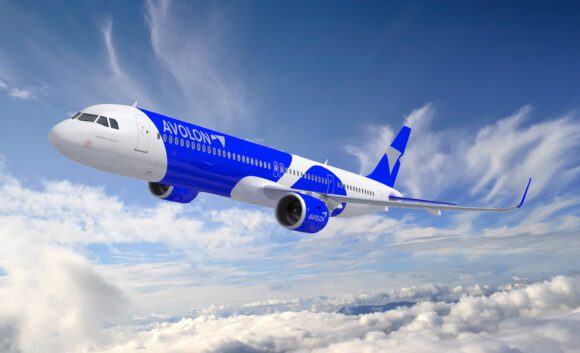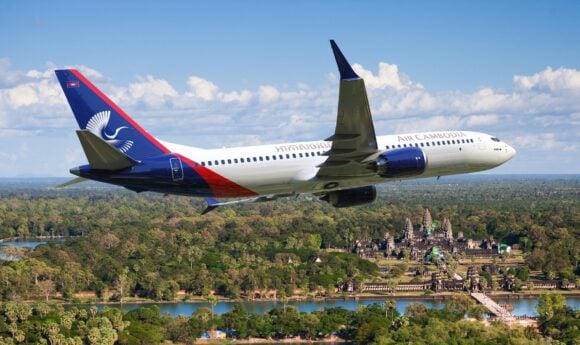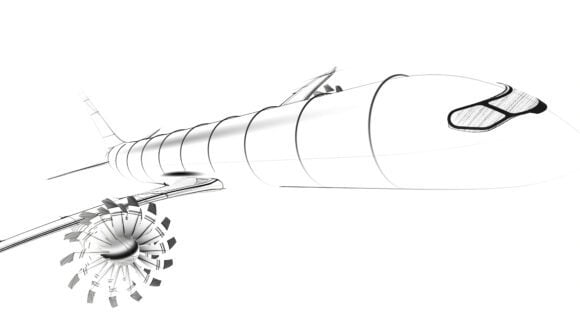
ATR72 ConnectAir scaled
UPDATE – US start-up Connect Airlines has bold plans for its regional operations with hydrogen-based aircraft. The carrier has announced a firm order with Universal Hydrogen for 75 converted ATR 72-600s plus 25 options. Connect expects to take delivery of the first aircraft in 2025. Connect Airlines eyes fleet of up to 100 hydrogen-powered ATR 72s.
Connect Airlines is part of Waltzing Matilda Aviation, which currently only operated private jets from its Bedford (Massachusetts) base. In April 2021, it announced plans to launch operations in Spring 2022 with a fleet of conventional De Havilland Canada Dash 8-400s on a regional network between Toronto, Chicago, and Philadelphia.
In December 2021, Connect made a radical change of strategy by announcing it would focus on operating a fleet of hydrogen-powered Dash 8-300s instead. It signed a Letter of Intent with Universal Hydrogen for the conversion of twelve aircraft plus twelve options. Universal is developing a modular hydrogen system that uses interchangeable capsules. These will be positioned at the back of the aircraft, occupying the space of two to three seat rows. Powering two 2mW electric motors, the aircraft would have a range of 400-500 nautical miles/740-930 kilometers.
Universal’s Rod Williams told AirInsight in November at the Dubai Airshow that it had LoI’s with five customers, including those with ASL Aviation, Icelandair, Air Nostrum, and ACIA Aero Leasing. Williams was seeing “tremendous interest in our product and as well as getting to a true carbon-zero solution.” Using modular capsules, the Universal Hydrogen system doesn’t require a hydrogen infrastructure at regional airports except for the availability of the capsules, which can be brought in by trucks.
The firm order for up to 100 ATR 72-600s is additional to the LoI for the Dash 8s, says Connect. Deliveries of both aircraft types are expected to start in 2025, the year Universal mentions as hoping to receive the required certification of its modular kit system. In a media statement, Universal says that its hydrogen aircraft will have economics “that are equivalent or better than those of hydrocarbon-powered ATR 72s from the very first delivery in 2025.”
Connect Airlines doesn’t identify where it will source the ATRs, nor does it specify the role of the French/Italian turboprop maker. But CEO John Thomas is bullish that he will grow the airline to have a significant fleet. “With this technology and its economics, we easily anticipate our appetite growing to over 800 airplanes in this class to support the growth of our route network across North America”, Thomas is quoted in a media statement.
On Thursday, Connect notified AirInsight that it had corrected this statement. According to a spokesperson, it should have read: “With this technology and its economics, we see the demand growing to 800 new aircraft added to the regional fleet over the next decade.” The airline didn’t answer specific questions of AirInsight on the project, including where it plans to source the ATRs from.
Announcing the order at the UP Summit on June 8, Universal CEO Paul Eremenko said: “This order places Connect firmly in the vanguard of the march to get aviation on a path to meeting Paris Agreement emissions targets. (…) We will need to convert most of the regional fleet in the 2020s and ensure that the new narrowbody aircraft built in the 2030s are hydrogen-powered—there is no other way to get there.”
ATR recently announced the EVO, an updated version of the 72-600 with new and more efficient engines that should be available on the market in 2028 or 2029. ATR said last month that it is still investigating hybrid-electric and even hydrogen technology for the program.
Views: 47



